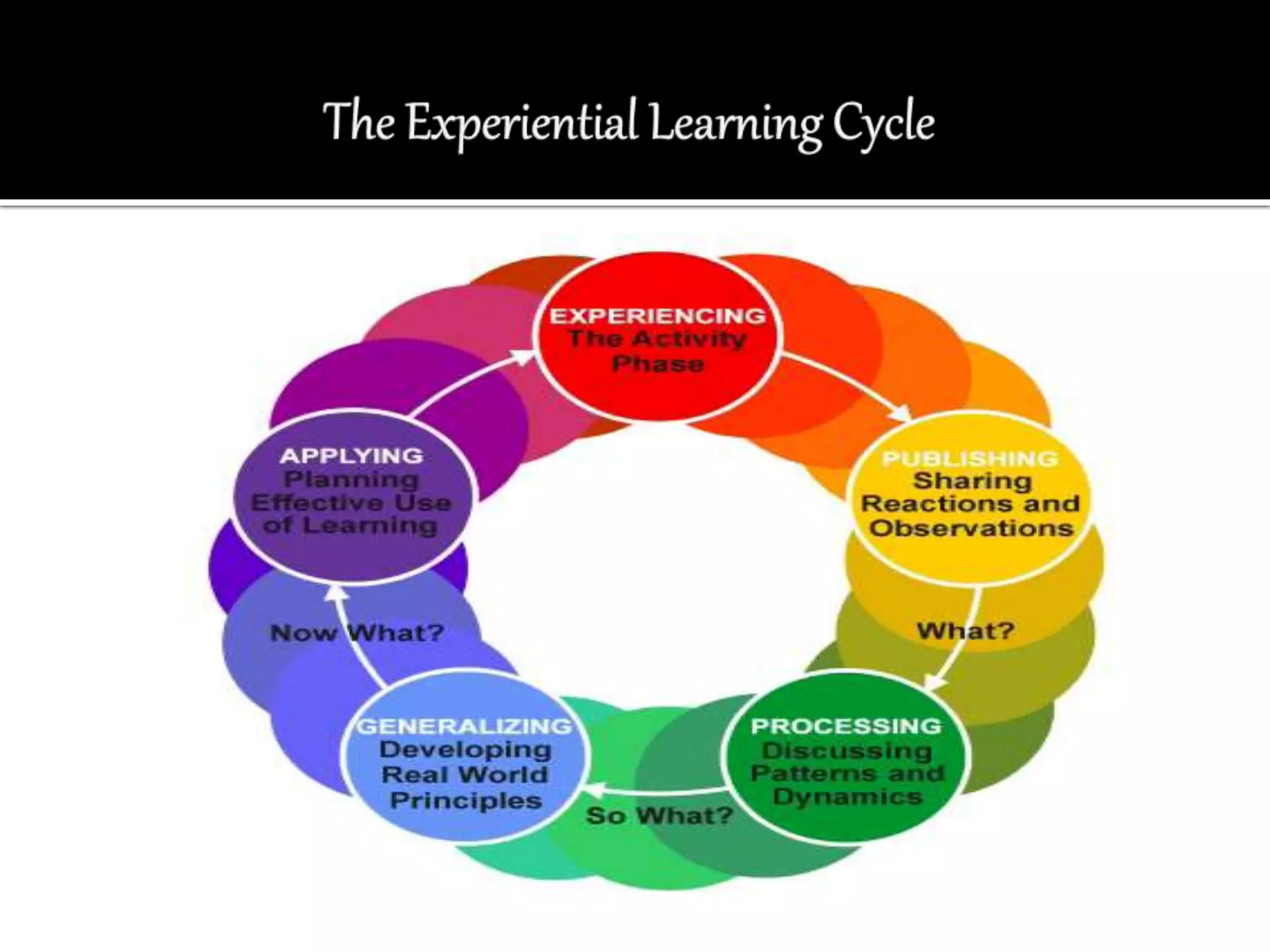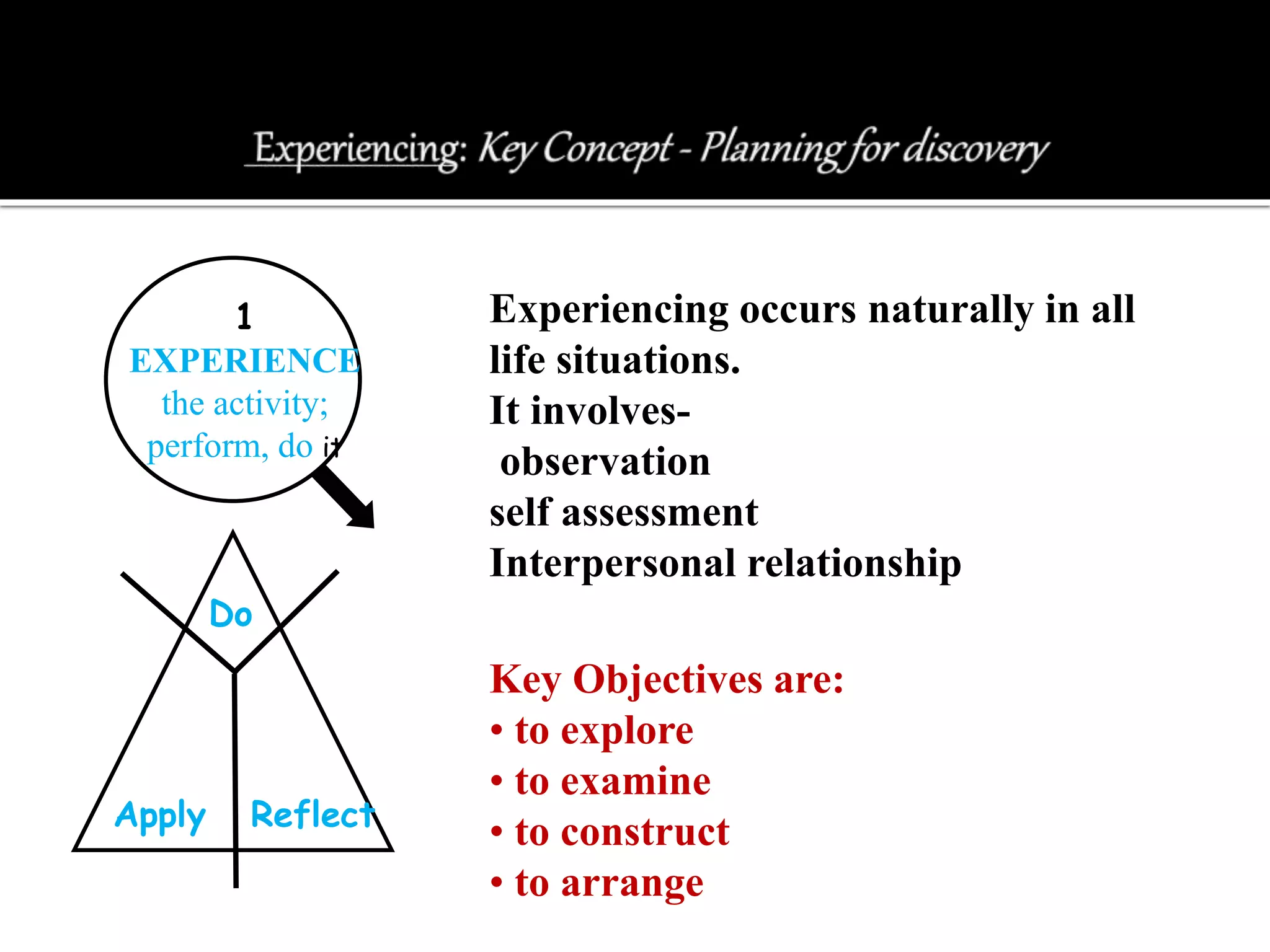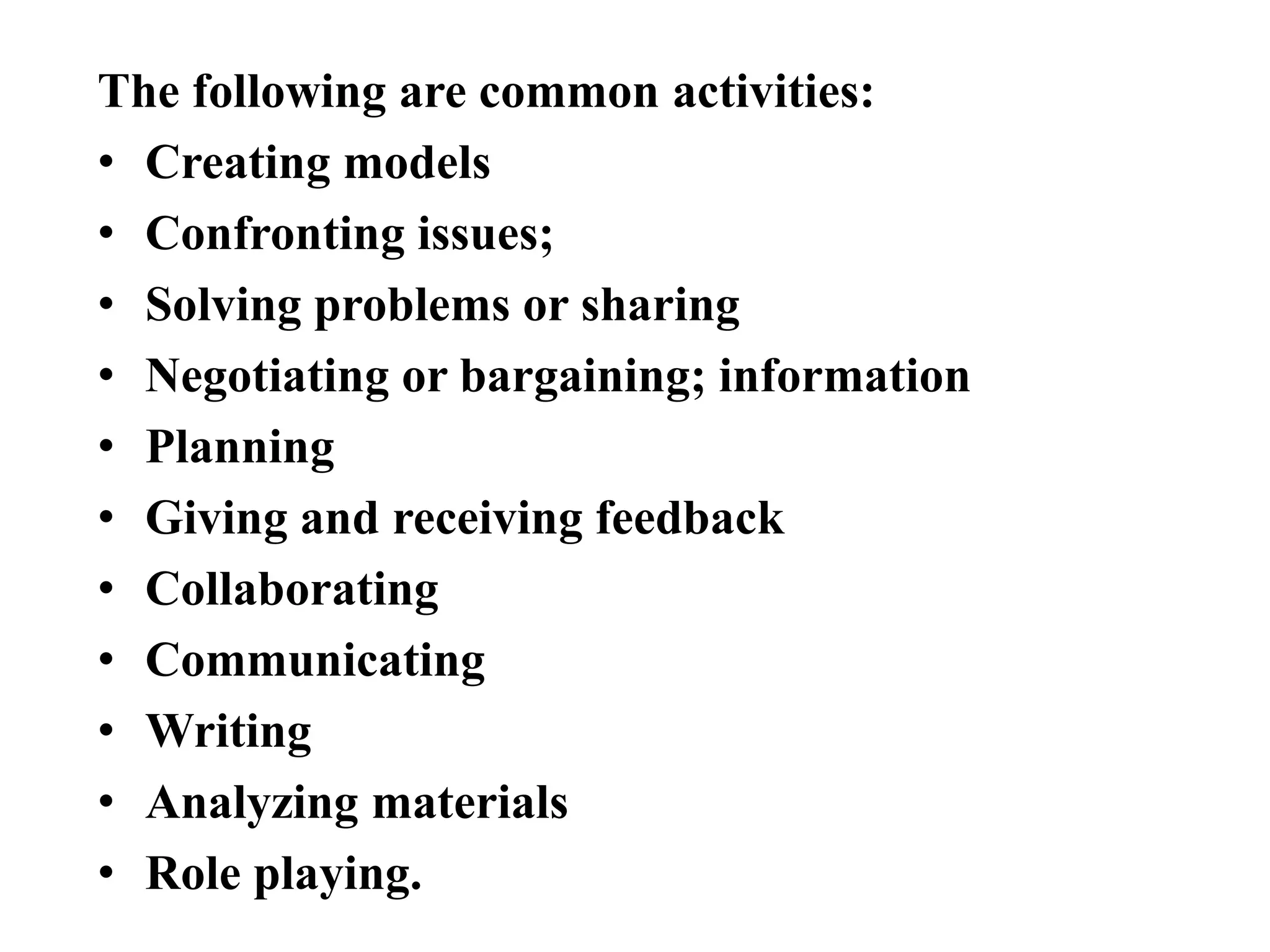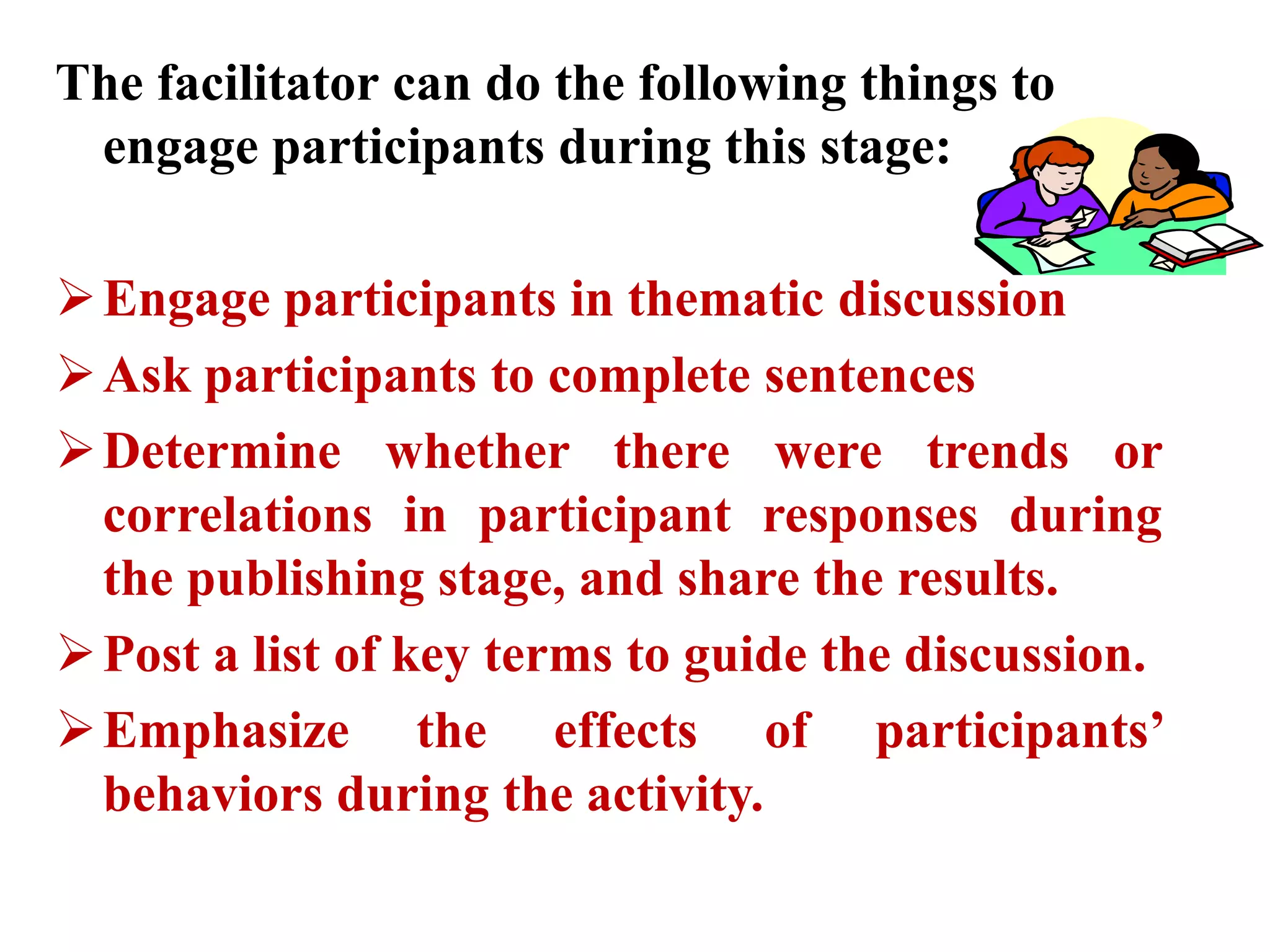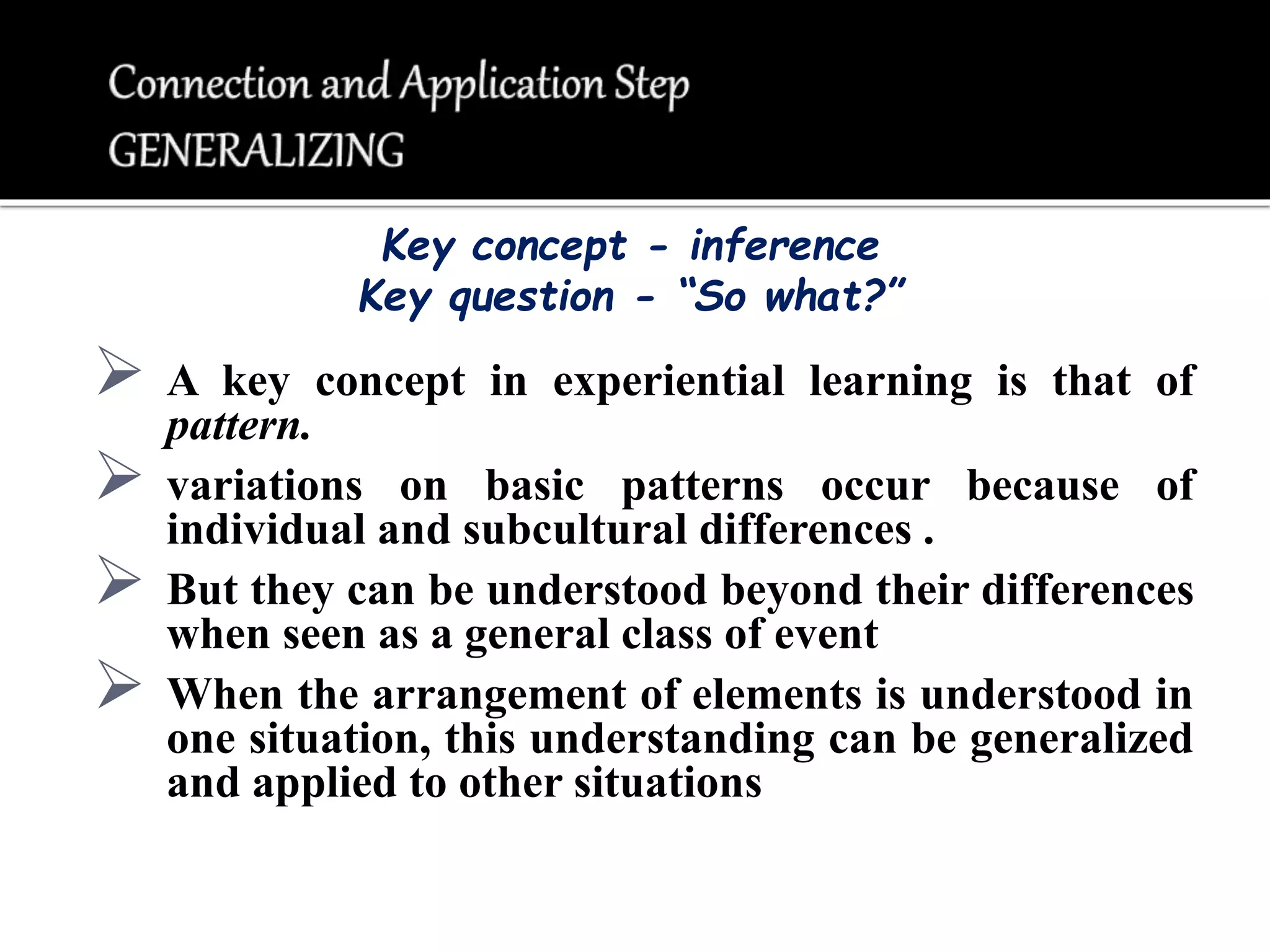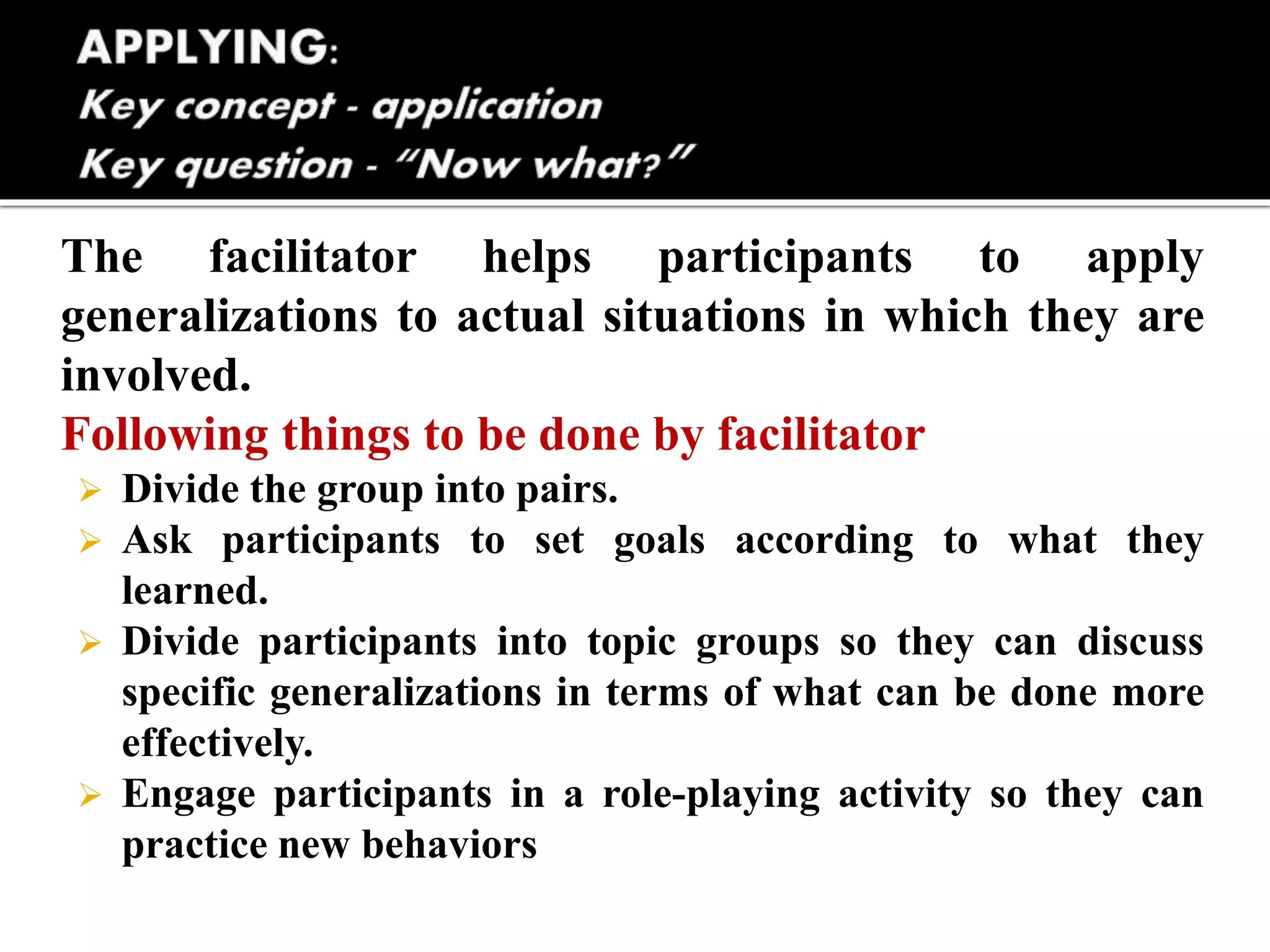The document discusses experiential learning and provides a 5 stage model of the experiential learning process. The 5 stages are: 1) experience, 2) share, 3) process, 4) generalize, 5) apply. During each stage, participants engage in various activities like role playing, group discussion, reflection, and goal setting to fully experience and learn from an activity or experience. The experiential learning model allows participants to confront issues and examine their behaviors in a way that generates personal involvement and deep understanding.




